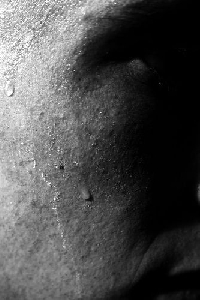What causes sweating in your sleep
By Catalogs Editorial Staff

Sweating in your sleep: What are the causes of this uncomfortable condition
We’ve all experienced night sweats to one degree or another; they can be a normal occurrence arising from too many layers, bed sheets, or even a warm room at night. When these factors aren’t involved, sweating in your sleep can take on a different tone.
Severe sweating — known as hyperhidrosis — is classified in the medical community as severe hot flashes during the day/night. There can be many different causes of excessive perspiration, from the benign to more problematic varieties. There may be an underlying medical condition causing these so-called “night sweats.”
It’s important to see your doctor in order to figure out the severity of the problem. In the coming paragraphs, we’ll take a look at the two forms of hyperhidrosis, potential root causes, and ways to treat excessive perspiration.
Different Types of Hyperhidrosis
Primary hyperhidrosis affects close to 3 percent of the population; it can be so severe as to affect everyday activities like work, school, and even sleep patterns. In most — if not all — of these cases, doctors are unable to find an underlying cause to the issue.
~
Secondary hyperhidrosis occurs due to a medical condition. It can occur throughout the body or be localized in one particular area. In the following paragraph, we’ll take a look at some potential causes of secondary hyperhidrosis during the night.
What May Be the Root Cause of Issues
The cause of sweating in your sleep can range from:
- Fever/Illness
- Menopause: Hot flashes which occur during the stages of menopause may also find their way into nighttime rest. According to Medicine.net, hot flashes and other symptoms can precede actual menopause by several years. Many women find relief from vitamin combinations formulated for menopause support.
- Infections: Tuberculosis is one of the main infections associated with night sweats. Others may include:
-
- Endocarditis
- Osteomyelitis
- Certain abscesses, like tonsils, boils, appendix, etc.
- AIDS virus
- Cancer: Night sweats can be an early indicator of cancer, with lymphoma being the main association. With this, though, these will normally be other symptoms which can help a doctor to make an informed diagnosis.
- Diabetes/hypoglycemia: Low blood sugar in diabetics may cause perspiration during the night.
- Hyperthyroidism and other hormone disorders
- Medications: In many instances, when doctors rule out signs of tumor or infection — and there are no other physical symptoms — certain medications can be pinpointed as the root cause. These may include:
-
- Antidepressants
- Aspirin or acetaminophen (used to lower fever)
- Niacin, hydralazine, sildenafil (Viagra), tamoxifen — These drugs may cause flushing of the skin and this will often be confused for night sweats
- Epilepsy
- Cerebral palsy
- Head injury
Thus, there are many potential root causes which can lead to increased perspiration during the night. Most are simply mere annoyances. As shown above, though, certain root causes may be cause for concern.
As with anything troublesome, it’s important to find out all the facts and consult a physician who can help to isolate causes and symptoms. In the end, treatment, support groups, and more can be a helpful addition to your doctor’s visit.
To learn more, head over to the PubMed Health page to find out more.
Resources:
Medicine.net: Night Sweats.
PubMed Health: Hyperhidrosis.
Stanford.edu: Sleep Hyperhidrosis.
Above photo attributed to Shaylor
Popular Savings Offers











